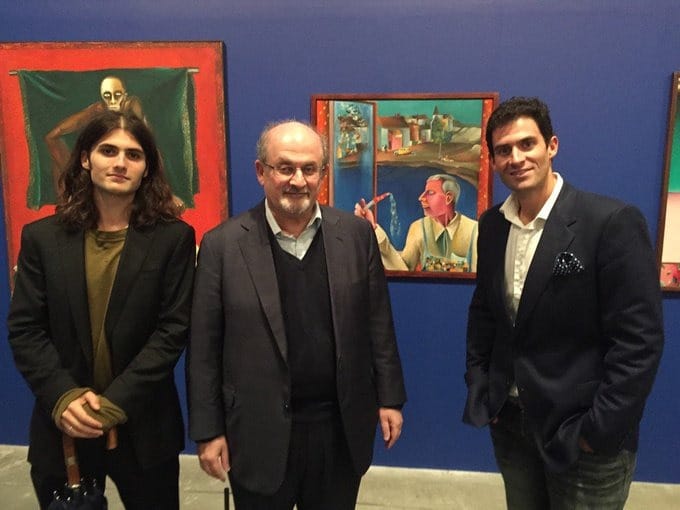Author Salman Rushdie described his foray into newsletter platform Substack, which he announced Wednesday, as part of an effort to “try things he hasn’t done before”. In another interview, he termed the move as an attempt at “killing” the hardcover novel.
“People have been talking about the death of the novel, almost since the birth of the novel … but the actual, old fashioned thing, the hardcopy book, is incredibly, mutinously alive. And here I am having another go, I guess, at killing it,” Rushdie told The Guardian.
His flair for the dramatic notwithstanding, Rushdie entering Substack does raise questions about the future of publishing, agency of the author in that nexus, author-reader relationship and whether it truly is the end of hard copies as we know it.
It also doesn’t hurt that Substack offers authors money upfront, even though Rushdie said that it’s less than what one gets for publishing a book.
With this age of social media, we all know the importance of the relevance game but authors haven’t ever been considered social media influencers. Besides J.K. Rowling’s anti-trans comments that is.
But here’s a platform that offers relevance and revenue and may just change the game for authors and their content. Or at least that’s the hope, according to Rushdie.
Also read: ABBA’s isn’t just a cash-grab comeback. It reminds us of their staying power in pop culture
New age literature
Books and literature have had a strange relationship with technology. At the core of it, most ‘book snobs’, as they have been termed, will scoff at e-books, audiobooks etc. They’ll wax eloquent about the nostalgia of yellowed paper and the musky scent of books. I’m one of them too.
But it is also true that paperbacks and hardcovers are increasingly occupying lower rungs of purchase lists with limited attention span, overcrowded schedules and increasing screen time.
At the same time, e-books and audiobooks have not really dominated the publishing market as the humble paperback had at one point.
This technological discomfort was also alluded to by Rushdie. “I think that new technology always makes possible new art forms, and I think literature has not found its new form in this digital age … Whatever the new thing is that’s going to arise out of this new world, I don’t think we’ve seen it yet.”
In this scenario, it is not surprising that authors are looking at alternate avenues and trying to cash in on the increasing relevance of the screen, which has been a prominent fallout of the Covid-19 pandemic.
Rushdie is not alone, American authors Patti Smith, Scott Snyder, Maggie Steifvater, Israeli writer Etgar Keret and a host of comic book authors from Marvel and DC have also forayed into Substack.
Lulu Cheng Meservey, vice president, communications, at Substack said this was because it was liberating for authors.
“They can publish directly to their readers, they have total control, retain all their rights. We build a community around them so they can have direct contact with their readers,” Meservey told The Guardian.
For authors, who have previously only been able to publish and market their works through big publishing companies, this exclusive right over content can prove to be a game changer.
Substack is still a recent platform. Authors have been trying to angle in new ways of keeping themselves and their works relevant for far longer. Rowling perhaps takes the cake here, with her milking the Harry Potter brand on every technological platform conceivable.
Others like Margaret Atwood have marketed their skills with online education platforms like Masterclass. The truly lucky ones, like American romance author Julia Quinn, get a Netflix contract for a big budget adaptation like ‘Bridgerton’.
But all of these have been few and far between.
Also read: A Lucknow teenager is a force of nature on Instagram. Meethika Dwivedi packs UP pride, gaalis
Full circle moment
An interesting bit about Substack is how authors are going back to the serialised form of the novel, which was how it actually began in the 19th century, in England.
All prominent authors of the time — from Elizabeth Gaskell, Thomas Hardy to George Eliot — serialised their novels in newspapers and magazines. With Charles Dickens, of course, being the veritable king of the genre.
So, will this shift to subscription-based platforms signal a return of these serialised novels and perhaps offer us the next gen Dickens (not that one is needed)?
It’s anyone’s guess really since how Substack fares within the literary world remains to be seen.
Rushdie is definitely right about one thing, ‘death of the novel’ has been declared innumerable times in the past century and yet, it endures on. It’s not easy to write off.
Views are personal.
(Edited by Anurag Chaubey)






